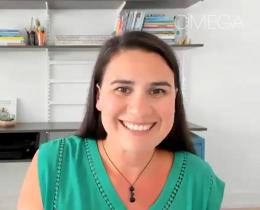No one gets a free pass when it comes to grief, and I sure wasn’t an exception.
Not even two months after the death of my son in the school shooting at Sandy Hook Elementary School in Newtown, Connecticut, I knew in my heart I would start the Jesse Lewis Choose Love Foundation. I wanted to spread Jesse’s message of “nurturing healing love” and was ready to throw myself into building up the foundation with all the energy I could muster. I hoped I could shake off some of my sorrow and perhaps channel my grief toward my new mission. But some days it took all the energy I could muster just to get out of bed.
Finding Support Through the Grieving Process
The grieving process, as I was learning, was not something that can be rushed or ignored. As my grief counselor, Dr. Laura, said to me during one of our sessions, “There is no other journey as unknown as grief. It is a way into the dark forest where nothing is familiar, and you have to manage your way through this landscape having lost your compass...yet, you must go through this darkness to reach the other side, to healing and even a spiritual rebirth. There is no other way out of the cocoon of grief but to break out.”
One of my first difficult steps into that dark forest and breaking out of my cocoon of grief was to meet with other parents who also lost children that day. I wasn’t sure I could handle it. It was hard enough trying to handle my own grief; to be confronted with so many others as emotionally devastated as I was seemed utterly impossible. When I walked into the room sobbing and one of the fathers and several of the mothers—none of whom I knew beforehand—rushed over to hug me, I knew that coming to meet them had been the right decision.
I had worried that being around so many parents with the same heartache as mine would magnify my pain, but that wasn’t the case at all. By sharing our sorrow as a group, our individual suffering lessened, even if just a little bit—and God knows, any relief was welcome. We bonded, and in that bond I found comfort.
Forgiving Myself First
We soon called ourselves the Healing Heart group, because that is what we became. It didn’t take long for us to realize that anger was part of our pain, and part of the anger was not being able to forgive. Forgive whom?
Well, first we had to forgive ourselves. I’ve learned that whenever a parent loses a child so suddenly, they can become wracked with guilt—which, at least for me, is anger at myself—for things I did or didn’t do. It’s natural to feel guilt for every ice cream cone denied or for every scolding given—feeling as if I’d not been a good enough mother and knowing that it’s too late to make up for those shortcomings.
I knew that in order to move forward I would have to let go of my guilt—I would have to forgive myself and accept that I’d been the best mother I had been able to be.
“These thoughts will show up and they will torture us,” I said to the group, “and we can choose to indulge them or we can choose to let them go and try to replace them with a happier memory. That’s what I’ve been trying to do, and it helps. It’s not always easy. There’s no magical fix. And it’s something you have to do every day, choosing more positive and loving thoughts. Especially for us, it might be a lifelong struggle. But it will help us heal, help us find some peace and find the spark of joy remaining inside of us.”
Ending the Cycle of Hate
Forgiving yourself is one thing—forgiving the person who killed your child is something else entirely. To many, that would seem like an impossible, impossible task. For me, I believe I had been preparing for it since Jessie was born.
At one point during my spiritual journey, I’d read Immaulee Ilibagiza’s book Left to Tell. It’s the story of how the author’s family was slaughtered along with 1 million others during the 1994 Rwandan genocide, and about how she herself survived, healed from the trauma, and then forgave the killers who murdered her family.
Near the end of the book, she visits her mother’s killer in prison and the warden gives her permission to take whatever revenge she wants on the murderer, who lay chained and helpless at her feet. She could have spit on him, kicked him, even killed him if she wanted to, but instead, she looked into his eyes, touched his hand, and said, “I forgive you.”
Later, she explains that she could not live with hatred in her heart and that if she wanted to be happy, her only choice was to choose love by forgiving the man. She added that forgiveness was the only way to end this cycle of anger and hatred that had led to the genocide in the first place.
When I read the scene where she forgives her mother's murderer, I remember admiring her compassion, but also thinking I could never forgive someone who killed my family, especially if it was one of my children. Now, six years later, I was facing a similar situation and, along with so many other parents, I was confronted with a similar choice.
Forgiving the Unforgivable—for Our Future
Some people in Sandy Hook had such anger toward the young man in question that they wouldn’t even utter his name, Adam Lanza. Not only do they remain unspeakably angry at him, but also at his mother, Nancy, whom he also killed that day.
People automatically assume I’m angry at Adam as well. And I admit, I’ve had a few moments when I was enraged, moments when I wished he could feel the same pain and hurt he inflicted on our children and on us.
But the truth is I have not felt a lot of anger toward him—and I know that shocks a lot of people. As soon as I learned what Adam had done, I immediately thought that there had to be something very, very wrong with him—no person in his right mind could have committed such a heinous act. And if he was severely disturbed, I could not hold on to anger toward him—I would have to forgive him, which I did.
Since then I have been told that perhaps Adam had been struggling with emotional or mental problems since childhood and was also horribly bullied as a child. I am not looking for excuses, but I am looking for reasons—and I can see how his own emotional turmoil and his anger at being a victim would have played a role in his victimizing our children so viciously.
By understanding what went wrong for Adam, I hope we can prevent the same kind of horrendous violence from occurring in the future—that is my goal. I used to talk to my sons J.T. and Jessie about finding compassion, practicing forgiveness, and trying to understand the pain that others might be experiencing that made them lash out in anger. Even in Rose’s Foal, the children’s book I wrote for J.T. so long ago, the mama horse tells the colt that we must put ourselves “in someone else’s horseshoes to understand how they feel.”
So when people ask me how I can forgive the man who killed my child, I say, “Hating Adam will not bring Jessie back. It will only hurt me and generate more anger and hatred.”
When we forgive someone, we do it for everyone.
We do it for the whole world, and for our future. We do it for our children. But mostly, we do it for ourselves.



